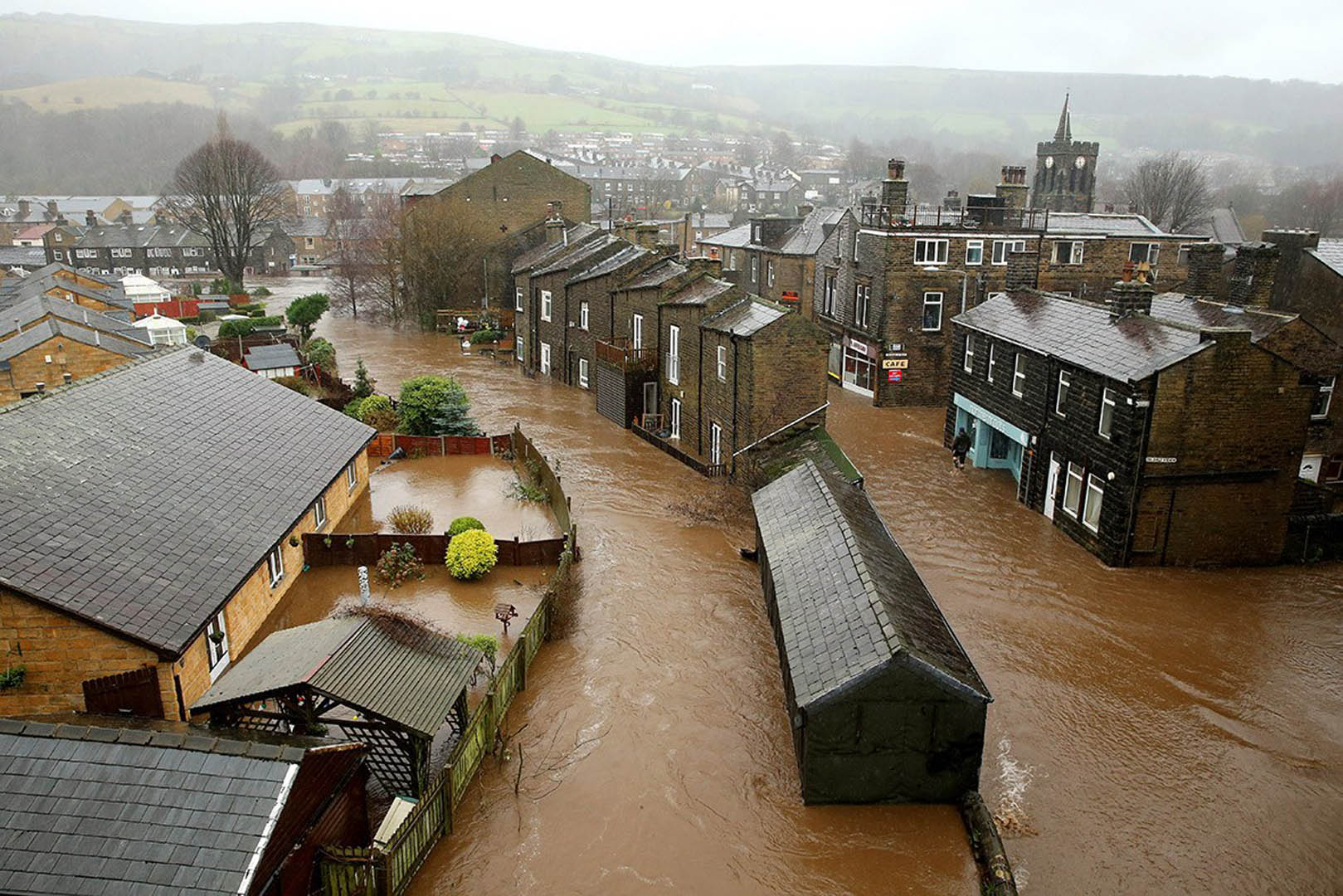Lead Local Flood Authorities
Lead Local Flood Authorities (LLFAs) across England and Wales have a statutory duty to carry out an investigation into flood events when they occur in their area. This duty is set out in Section 19 of the Flood and Water Management Act 2010 – and hence such flood investigations are referred to as Section 19 investigations.
How are we involved?
We have supported many LLFA Section 19 flood investigations across both England and Wales. Since 2015, we have carried out over twenty Section 19 investigations, including four in Calderdale (following Storm Angus, ex-hurricane Ophelia, Storm Brian, Storm Ciara and Dennis); ten in Buckinghamshire (following Storm Alex and Christmas 2020); three on the Isle of White (following summer flooding in July 2021); three in the Vale of Glamorgan (following the Christmas 2020 event); one in Winchester (following Storm Francis); and three in East Sussex covering repeated flooding issues.
What is covered in a Section 19 flood investigation
We complete a report that identifies the nature and source of the flooding, be it surface water runoff, pluvial, river, groundwater, sewage, coastal or estuarine. Our investigations address the following:
- establish the sources and pathways of flooding
- identify any factors or mechanisms which may have caused or exacerbated flooding
- examine the likelihood of recurrence of the event and consider the conditions before the flooding occurred
- assess the impact of the flooding on people, property, infrastructure and services
- assess the operation and performance of assets such as flood defences
- understand the effectiveness of the response, for example, communication of flood forecasts and warnings
- understand the actions of the various Risk Management Authorities (RMAs) and whether they exercised or intend to exercise their flood risk management functions
- identify any lessons learned from the event
Community and partner engagement
We work closely with LLFA’s to produce a Section 19 report which reflects local circumstances. Every flood investigation is different, in terms of sources of flooding or combination of sources, setting (rural/urban), the size of the area affected, the vulnerability of the residents, and the scale of the economic, social and environmental impacts.
It is essential to involve the community – for example through face-to-face meetings with local representatives, and online questionnaires for residents. This also provides an opportunity to explain the remit of the investigation and to manage expectations; often communities will be expecting the report to identify a comprehensive flood alleviation scheme, so it is important we explain the purpose and scope clearly. It is also important to engage directly with a wide range of stakeholders: RMAs; partners and other local authority functions; Environment Agency or Natural Resources Wales; Water and Sewerage Companies; Internal Drainage Boards (England) or Districts (Wales); the Highways Authority; Local Resilience Forums (LRF) multi-agency partnerships; and Borough/District Councils. This provides an opportunity to discuss challenges, successes and lessons learned, in terms of day-to-day flood risk management activities and also both the response during an event and potential future actions.

Why are they important?
Section 19 flood investigations are important because they help to establish a formal record of past flooding, something that has previously been lacking, particularly for ‘local sources’ of flooding (pluvial, surface water, ordinary watercourse, sewer and groundwater). Over time they help to create an evidence base that will inform actions by RMAs, and feed into local flood risk management plans and strategies.
Communities, particularly smaller communities or those affected by local sources of flooding, can use them to make the case for increasing their resilience to flooding. They help raise awareness and encourage positive actions to adapt, prepare, respond and recover from flooding in the future.
Further guidance is available in the BSI Standards Publication, BS 85600:2017 Post-event flood assessments – Guidance on investigating flood incidents.

Contact Anna Beasley for more information about how we can help with Section 19 flood investigations.



